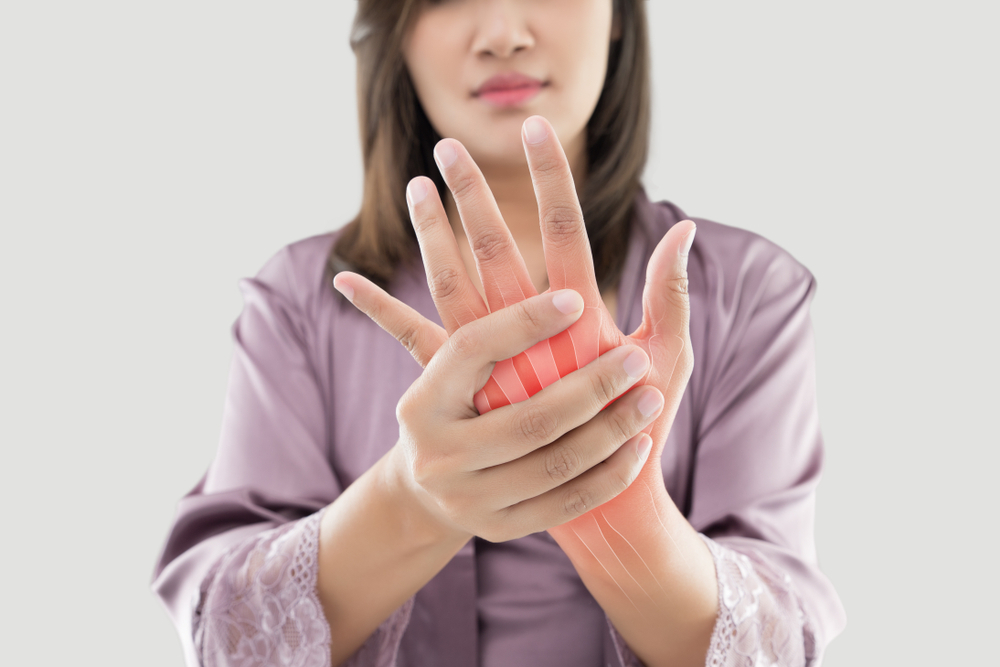Rheumatoid arthritis (RA) is a chronic autoimmune inflammatory disease that primarily affects the joints, causing pain, stiffness, and swelling. Let us discuss the diagnostic methods and treatments for rheumatoid arthritis.
The diagnosis of rheumatoid arthritis (RA) involves a combination of clinical evaluation, medical history, physical examination, blood tests, and imaging studies. The best hospital for arthritis in Coimbatore, a rheumatologist doctor in the diagnosis and treatment of rheumatic diseases, is typically the medical professional who assesses and diagnoses RA.
Check out the below steps which are involved in the diagnosis of rheumatoid arthritis
The diagnosis of rheumatoid arthritis (RA) involves a combination of clinical evaluation, medical history, physical examination, blood tests, and imaging studies. The best hospital for arthritis in Coimbatore, a rheumatologist doctor in the diagnosis and treatment of rheumatic diseases, is typically the medical professional who assesses and diagnoses RA.
Check out the below steps which are involved in the diagnosis of rheumatoid arthritis
 |
| Joint Inflammation Treatment in Coimbatore |
Medical History and Physical Examination:
- Your doctor will ask you about your symptoms, including joint pain, swelling, stiffness, and other relevant issues.
- They will inquire about the duration and pattern of your symptoms, as RA often involves symmetric joint involvement (affecting both sides of the body).
- Details about the intensity and time of day when symptoms are worse, as well as any factors that relieve or worsen the symptoms, are important to share.
- A physical examination will assess joint tenderness, swelling, warmth, and range of motion. The presence of nodules or other physical signs may also be noted.
- Blood tests help to support the diagnosis and assess disease activity. Common blood tests include:
- Rheumatoid Factor (RF): An antibody that is often present in the blood of individuals with RA.
- Anti-Cyclic Citrullinated Peptide (anti-CCP) Antibodies: Another type of antibody associated with RA.
- C-reactive Protein (CRP) and Erythrocyte Sedimentation Rate (ESR): These tests measure markers of inflammation in the body.
- While these tests can provide valuable information, they are not definitive on their own and must be interpreted alongside clinical findings.
- X-rays can help reveal joint damage, such as erosions and cartilage loss, which are characteristic of RA. However, these changes may take time to develop, so early-stage RA might not show significant X-ray findings.
- Ultrasound and magnetic resonance imaging (MRI) can provide more detailed images of the joints and surrounding tissues, helping to assess inflammation and joint damage.
The American College of Rheumatology (ACR) has established criteria for diagnosing RA based on various factors, including joint involvement, blood tests, and duration of symptoms. These criteria help guide the diagnosis and are periodically updated to reflect advances in our understanding of the disease.
Exclusion of Other Conditions:
Diagnosing RA involves ruling out other conditions that can have similar symptoms, such as other types of arthritis, infections, and autoimmune diseases.
A rheumatoid arthritis specialist in Coimbatore, a doctor specialized in treating rheumatic diseases, is typically the best healthcare professional to guide RA treatment. Here are some common treatments and approaches for rheumatoid arthritis:
Medications:
- Disease-Modifying Antirheumatic Drugs (DMARDs): These drugs target the immune system and aim to slow down the progression of RA. Methotrexate is a commonly prescribed DMARD and is often considered the first-line treatment.
- Biologic DMARDs: These are a subset of DMARDs that are derived from living cells. They target specific components of the immune system that contribute to inflammation in RA. Examples include etanercept, adalimumab, and infliximab.
- Janus Kinase (JAK) Inhibitors: These drugs block specific enzymes involved in the immune response. Tofacitinib is an example of a JAK inhibitor.
- Corticosteroids: These medications help reduce inflammation and are often used for short-term symptom relief.
- It can be taken as oral, applied topically or it can be injected into joints
- Nonsteroidal Anti-Inflammatory Drugs (NSAIDs): These drugs help manage pain and inflammation. While they don't slow the progression of the disease, they can provide relief from symptoms.
- Pain Relievers: Over-the-counter pain relievers like acetaminophen can help manage pain associated with RA.
- Physical Activity: Regular exercise, including low-impact activities like walking, swimming, and yoga, can help maintain joint flexibility, strengthen muscles, and improve overall well-being.
- Balanced Diet: A healthy, balanced diet rich in fruits, vegetables, whole grains, lean proteins, and healthy fats can support overall health and potentially reduce inflammation.
- Weight Management: Maintaining a healthy weight can alleviate stress on joints and help manage symptoms.
- It can improve joint functions, reduce pain in the joints, and increase mobility through techniques & exercises to the individual's needs.
- Occupational therapy focuses on helping individuals adapt to daily activities and tasks while protecting their joints.
In cases of severe joint damage and pain that doesn't respond to other treatments, surgical options such as joint replacement (arthroplasty) may be considered.
Alternative and Complementary Therapies:
Some individuals find relief from RA symptoms through complementary therapies like acupuncture, massage, and herbal supplements. It's important to discuss these options with a healthcare professional before trying them.
Monitoring and Adjusting Treatment:
Rheumatoid arthritis is a chronic condition that requires regular ongoing management. Treatment plans may need to be adjusted based on disease activity, response to medications, and changes in overall health.
Closing thoughts:
Early diagnosis and prompt treatment are essential in controlling the disease and preventing joint damage. Consult Highly Experienced Rheumatoid Arthritis Specialist for joint inflammation treatment to achieve the best possible outcomes.
Comments
Post a Comment